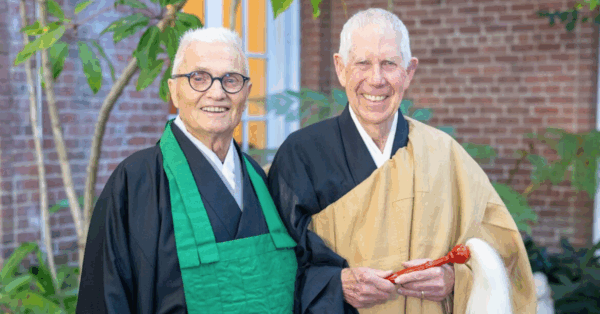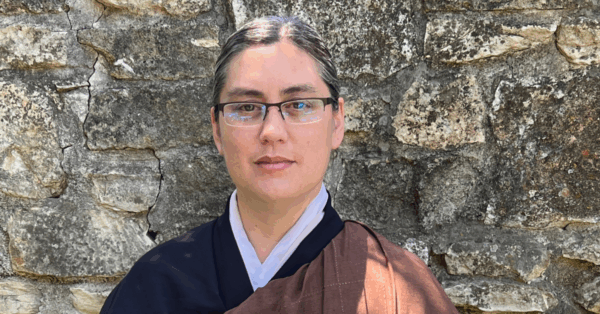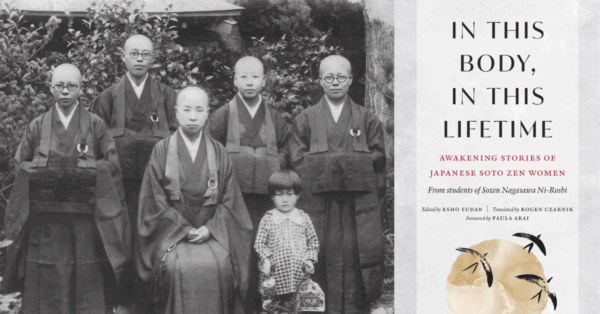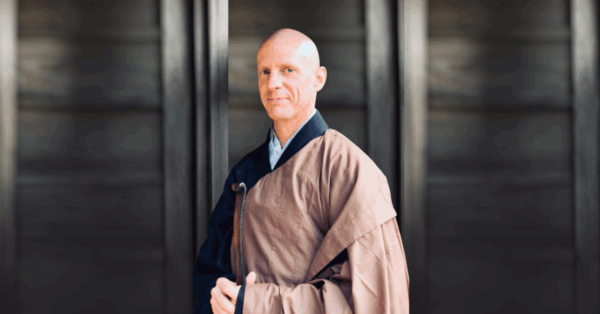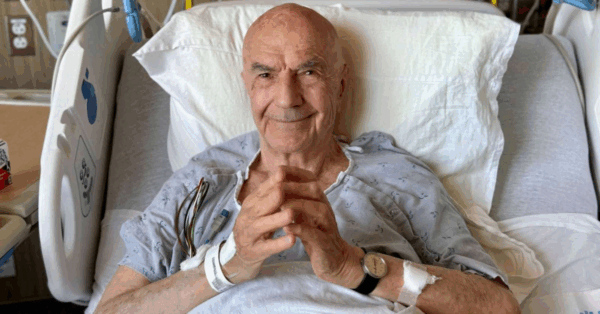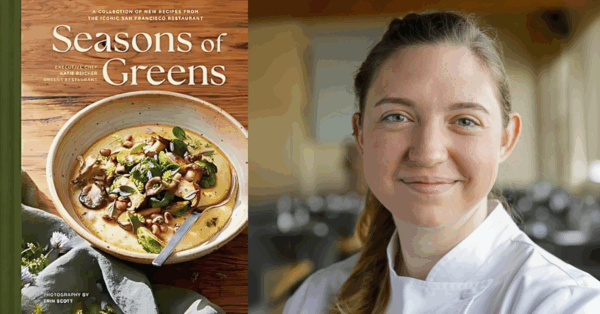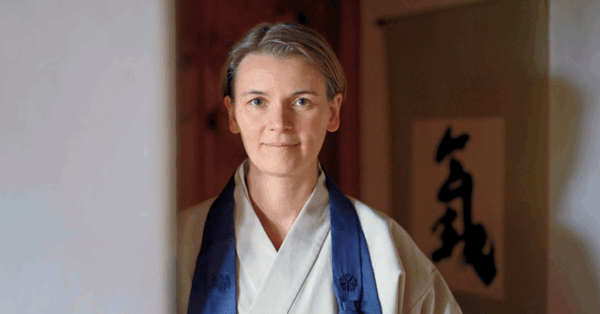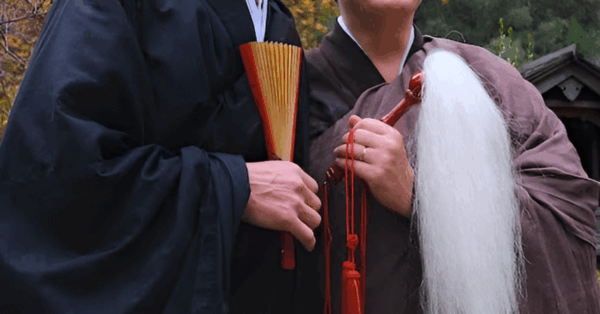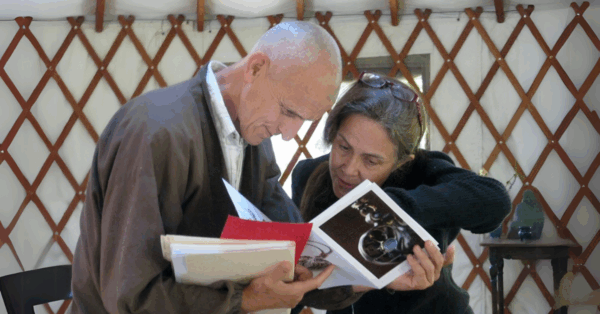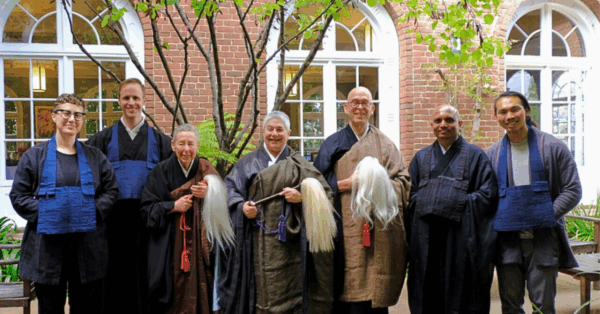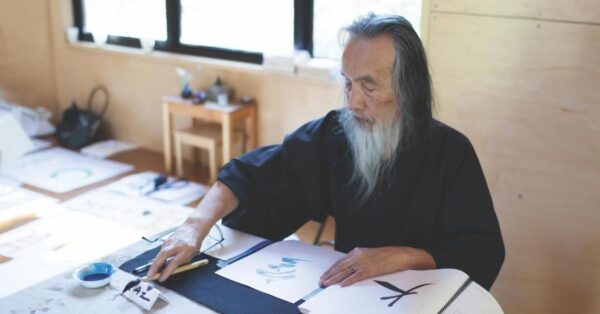
Kaz Tanahashi. Photo by Margo Moritz.
By Tova Green
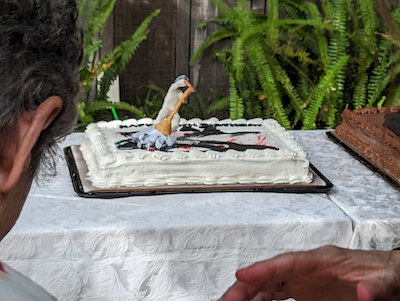
Kaz’s birthday cake, baked and decorated by his daughter Karuna Tanahashi. Photo by Joan Amaral.
Kazuaki Tanahashi, Buddhist scholar, artist, and activist, will turn ninety on October 4. His birthday was celebrated by many friends and family at Green Gulch Farm on September 6. “My personal feeling about being ninety years old is that it’s important that all of us feel fresh and young. When we feel fresh and young we are fresh and young. We can be young until we die of old age. I’d like everyone to continue to be fresh and young.”
Kaz is working on a book that unpacks this view, titled De-age, the Art of Feeling Fresh and Young. “We age and de-age at the same time. After sleeping or doing something joyous, we revitalize ourselves.”
Kaz has great appreciation for San Francisco Zen Center. He was invited to begin serving SFZC in 1977 as Scholar in Residence. During the seven years he was in that role, he translated Dogen with many advanced Zen practitioners. After that he lived independently and continued his project of translating Dogen for 33 years with the support of SFZC: “Dogen’s inspiration deepens and expands world wide, day by day.”
Kaz was a painter and calligrapher long before he began translating Dogen. He says he was looking for spiritual guidance and found his way to Dogen’s poems and essays. Kaz began translating Dogen in 1970, at the age of 26, with his Japanese teacher Soichi Nakamura Roshi. In the late 1970s they published Shobogenzo, a four-volume translation of Dogen’s life’s work, into modern Japanese (the original text was in medieval Japanese).
Kaz visited Soko-ji in San Francisco and met Shunryu Suzuki Roshi and his wife Mitsu Suzuki in 1964. Thirteen years later Kaz started living at San Francisco Zen Center, where he met Linda Hess. They were married at City Center in 1980.
During his years at SFZC Kaz became concerned about the expansion of the nuclear arms race. This led him to organize a nuclear weapons study group, and SFZC became one of the strongholds of the nuclear freeze movement. Kaz has continued to work for peace throughout his life.
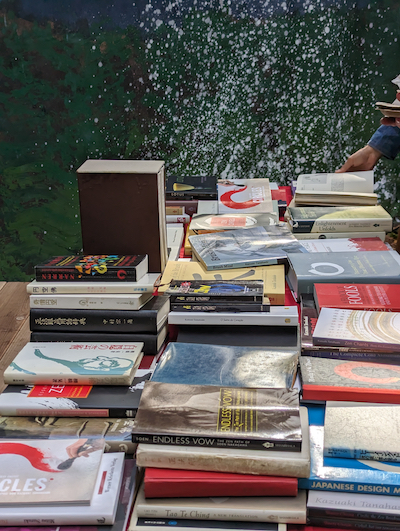
Table at his birthday party displaying books that Kaz has written, edited, and co-authored. Photo by Joan Amaral.
One of Kaz’s current projects, A World without Armies, encourages people, some of whom are in European countries, to stop exporting weapons and move toward demilitarization. He was inspired by Costa Rica’s example, and has been writing a book, Breakthrough Costa Rica: Lessons for the World, inspired by Rodorigo Carazo (former president of Costa Rica), which he hopes to complete by the end of 2023. Using the examples of Costa Rica and Panama, which don’t have armies, he is asking countries to give up their military forces. Many small nations have followed this path. He calls for “a demilitarization race” instead of an arms race.
To address the climate crisis Kaz is working on a project to plant trees in the Amazon Rainforest through an organization he co-founded, with artist and activist Mayumi Oda, called Inochi (which means “life force” in Japanese). A year ago, Inochi partnered with a Brazilian organization, Amazon Reforest Alliance, which works with indigenous people to plant trees. Kaz’s job has been to raise money to support this project. Last year the project was able to plant five thousand trees through Inochi. “People think climate issues are so huge that they are overwhelmed. Here is something anyone can do—donate fourteen dollars, plant one tree. It’s a small, humble project—trees in the Amazon Rainforest help to expand ‘Flying Rivers,’ a massive vapor that affects the clouds, rainfall, and temperature of the globe. We need an infinite number of humble projects.” Kaz hopes this project will be duplicated.
As Kaz turns ninety, he has a heightened awareness of the imminence of death. He is collaborating with his daughter Karuna Tanahashi on a film, “Can We Appreciate Death?” “What is the positive side of our own death? If we are given three months or three weeks we can try to complete our life. I don’t have a terminal illness. But I plan to complete my life by the end of 2023. I’m signing all my paintings and throwing away what I don’t need. I feel happy about it, being peaceful, joyous, and grateful every moment. I’m full of love—more so than if I didn’t have a finish line. I see death as a beautiful friend whom I greet: ‘Hi, nice to see you.’ The film is nearly done.”


